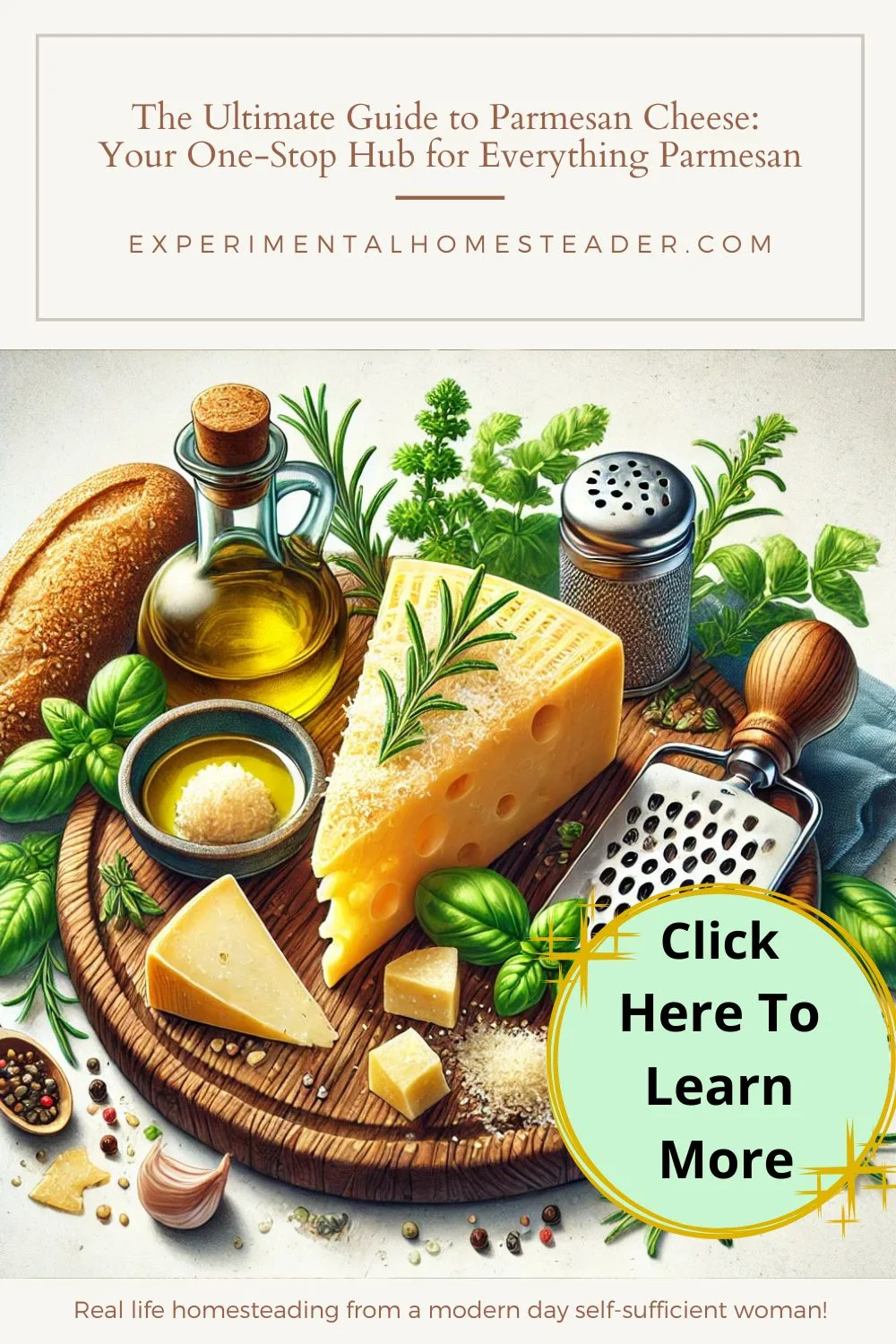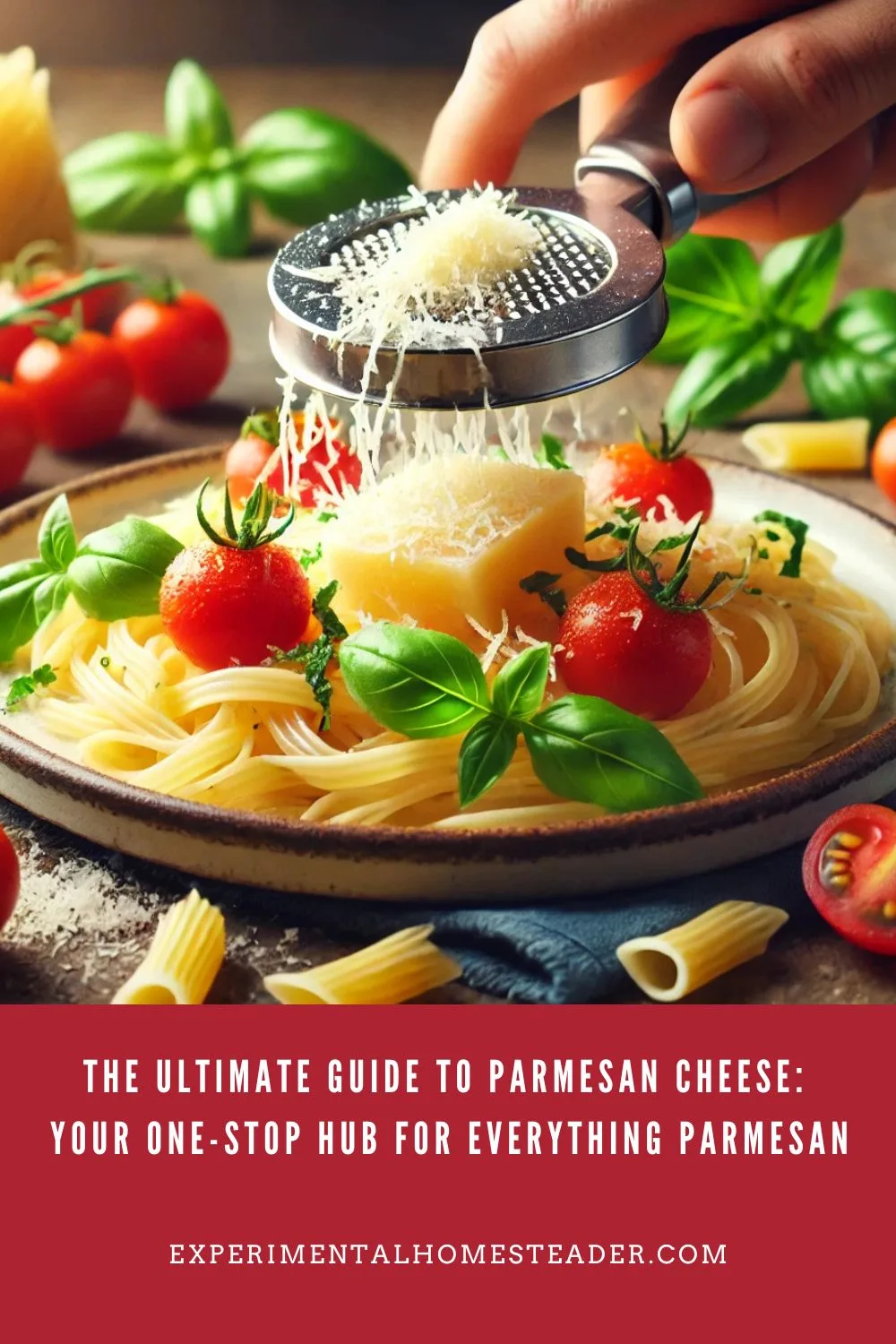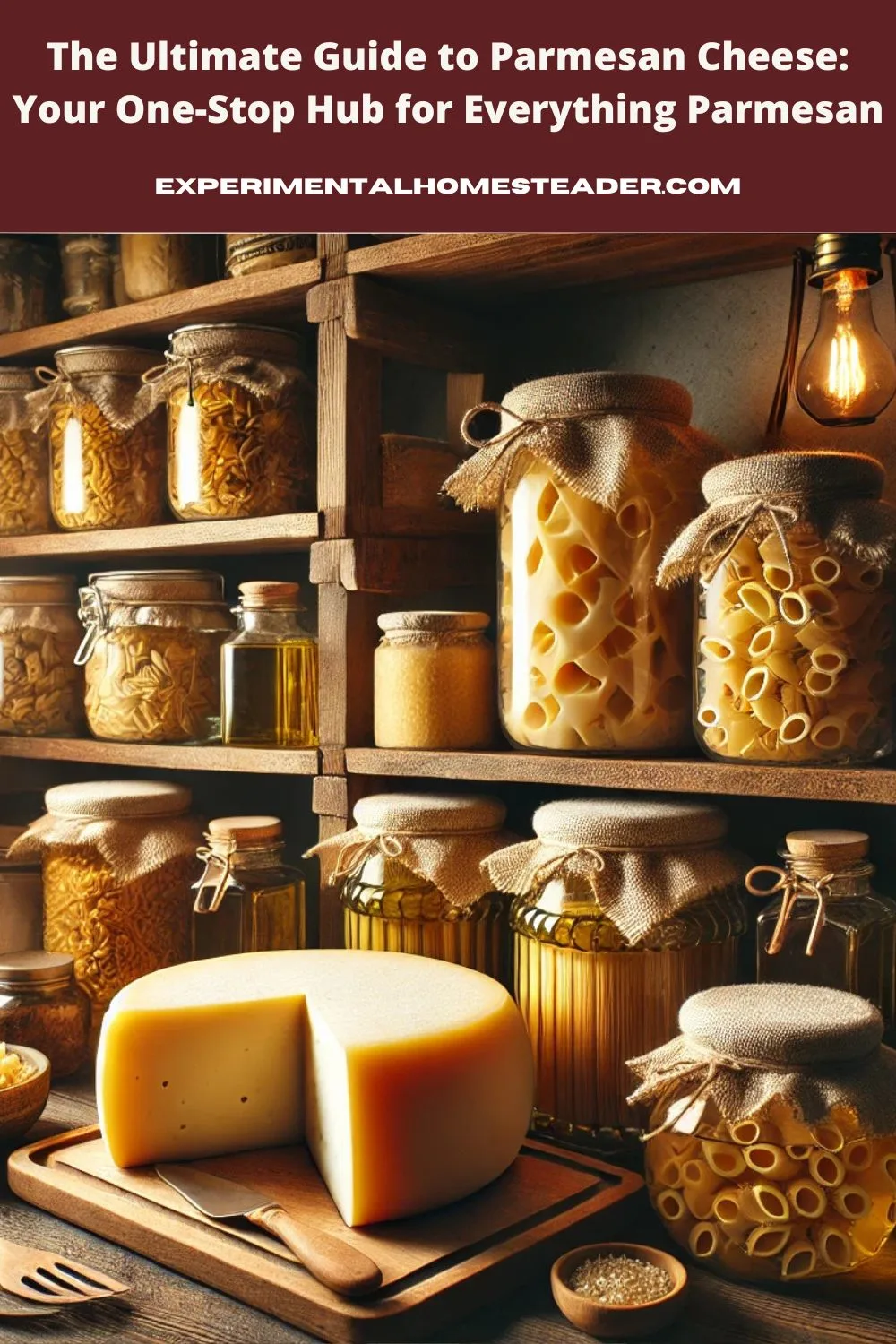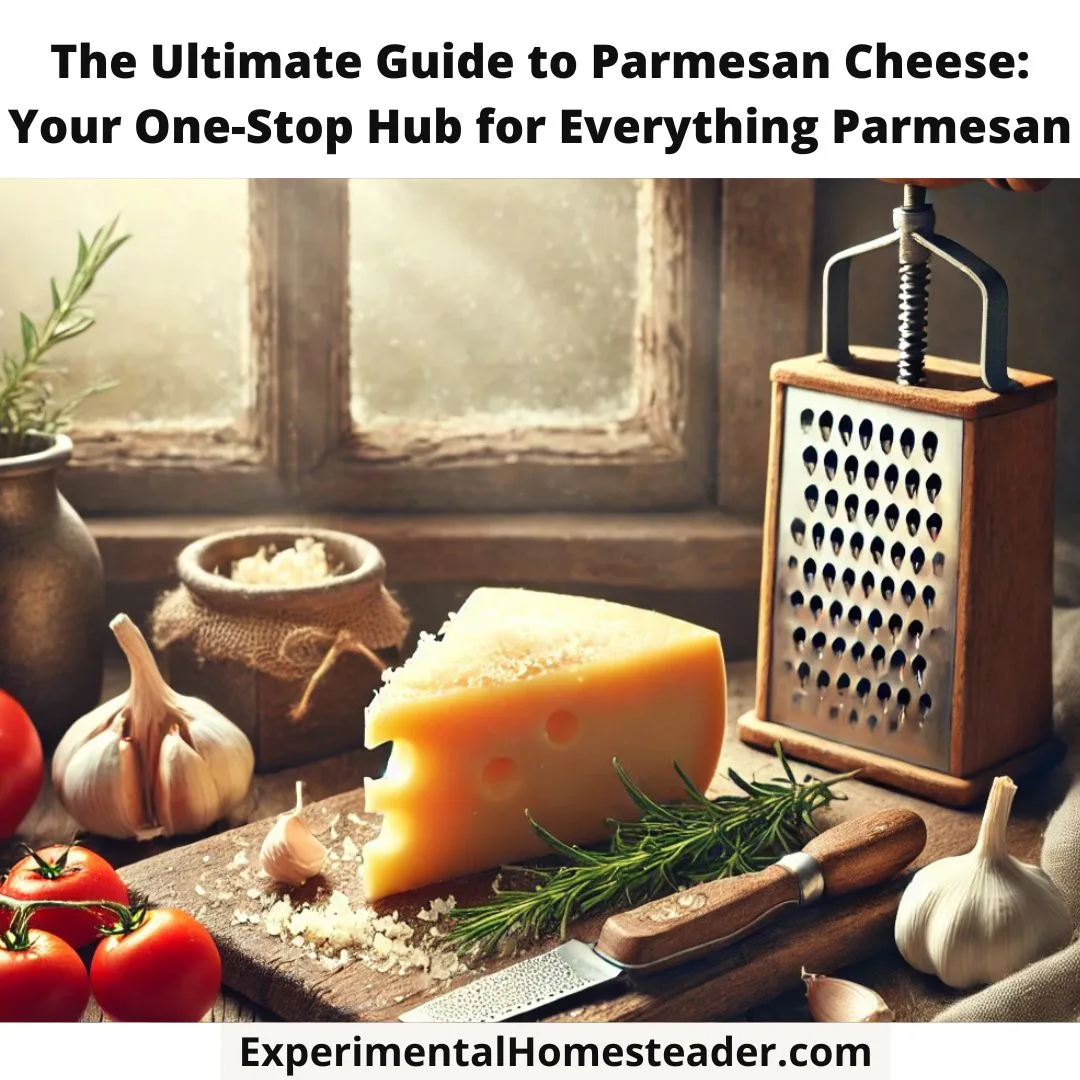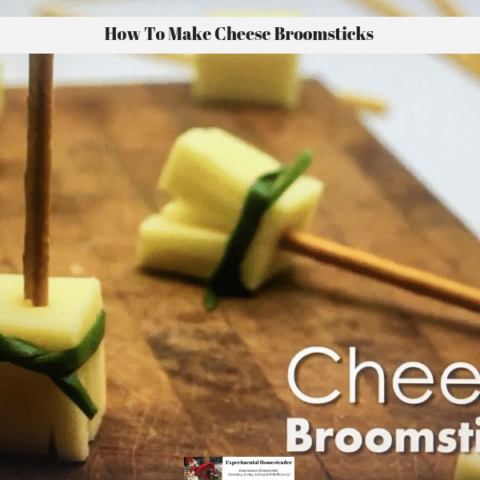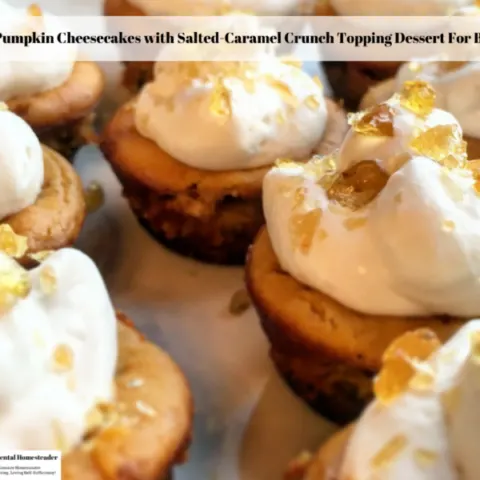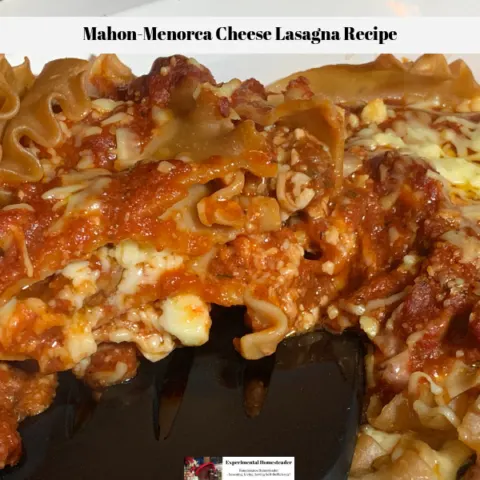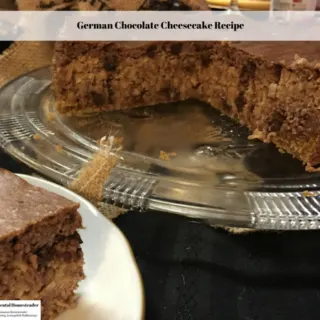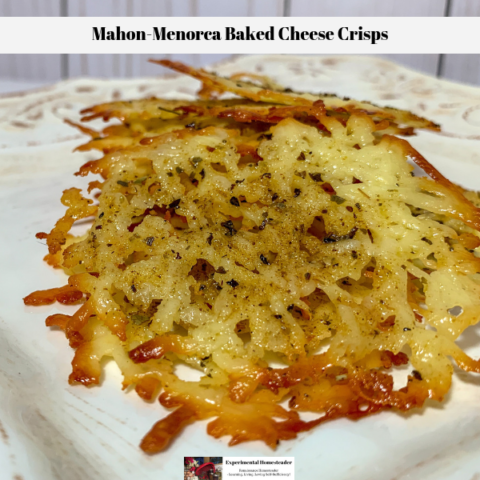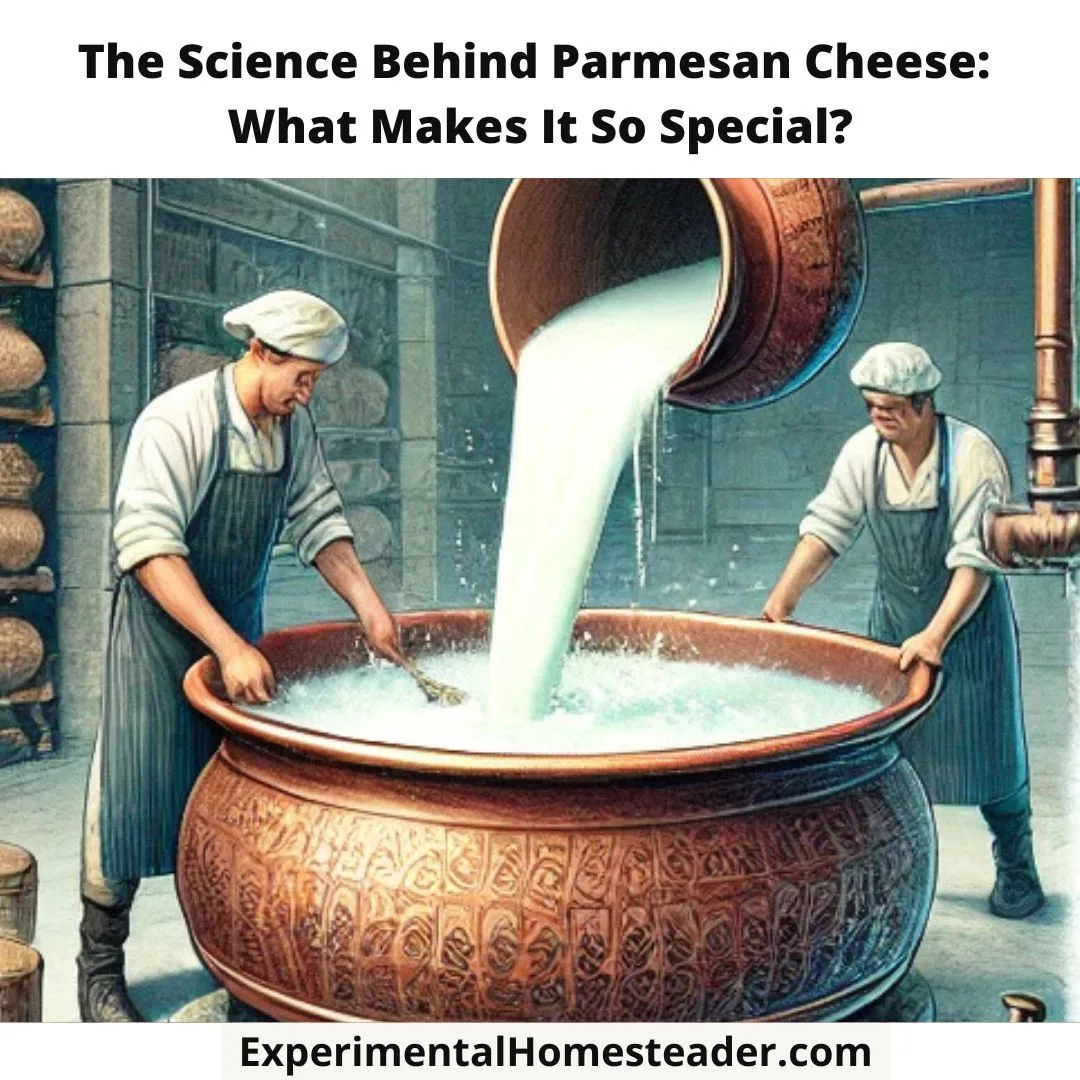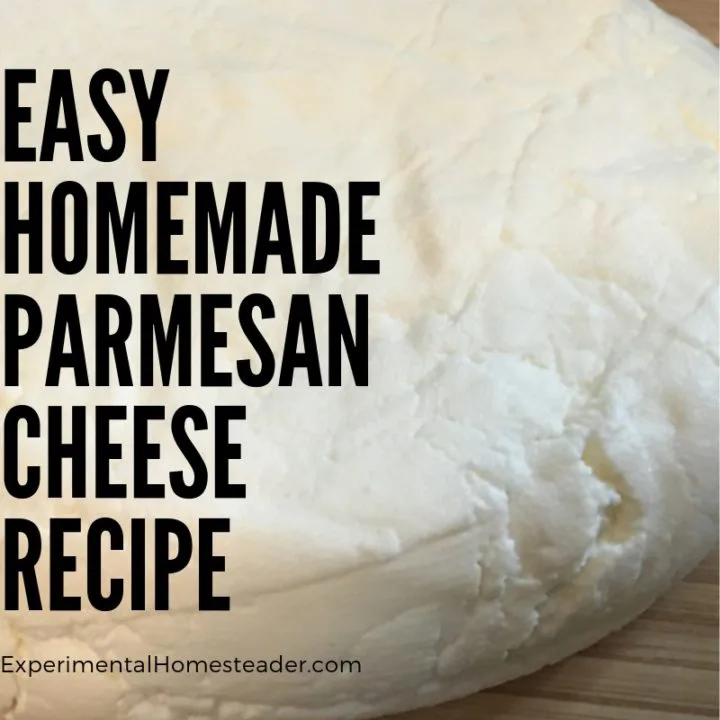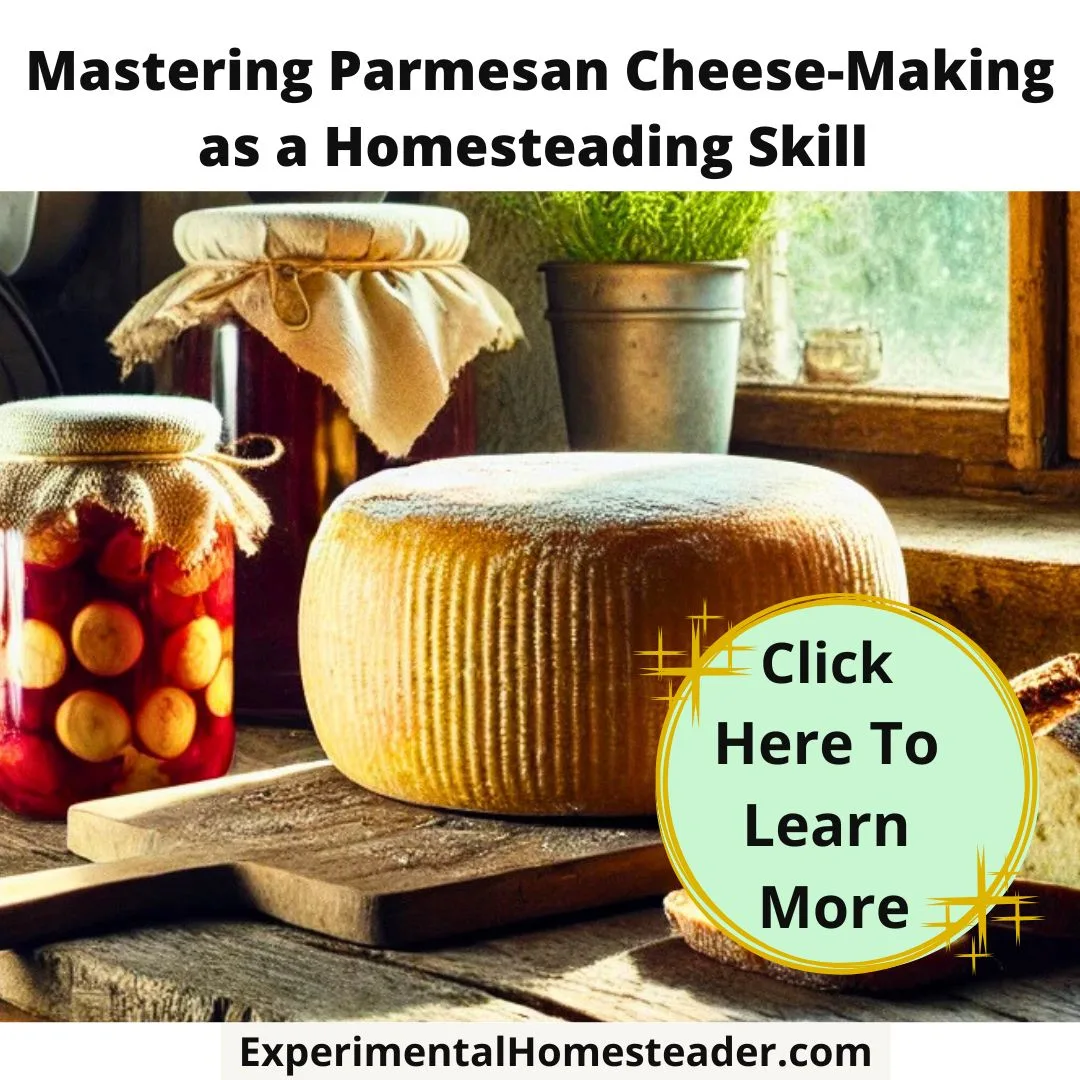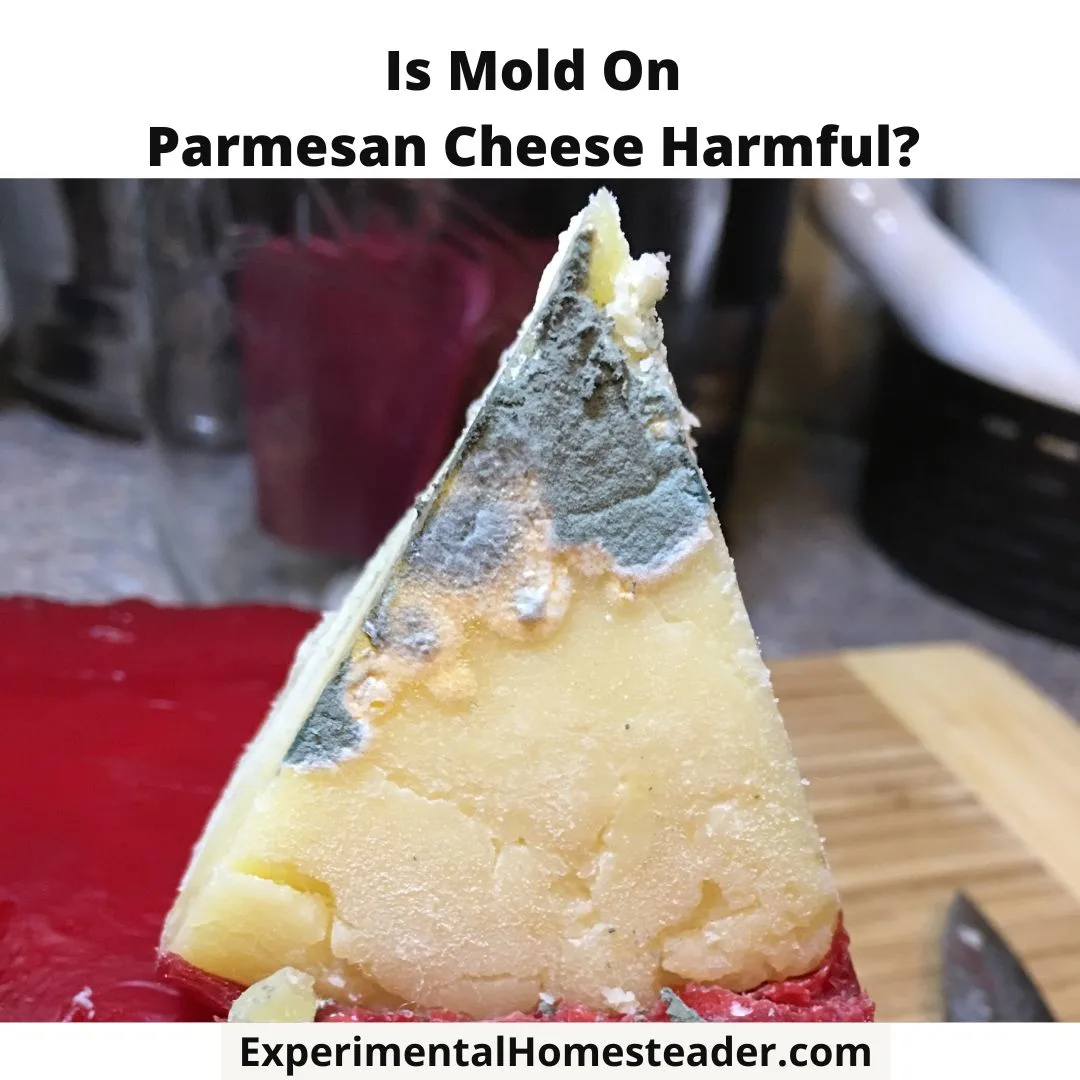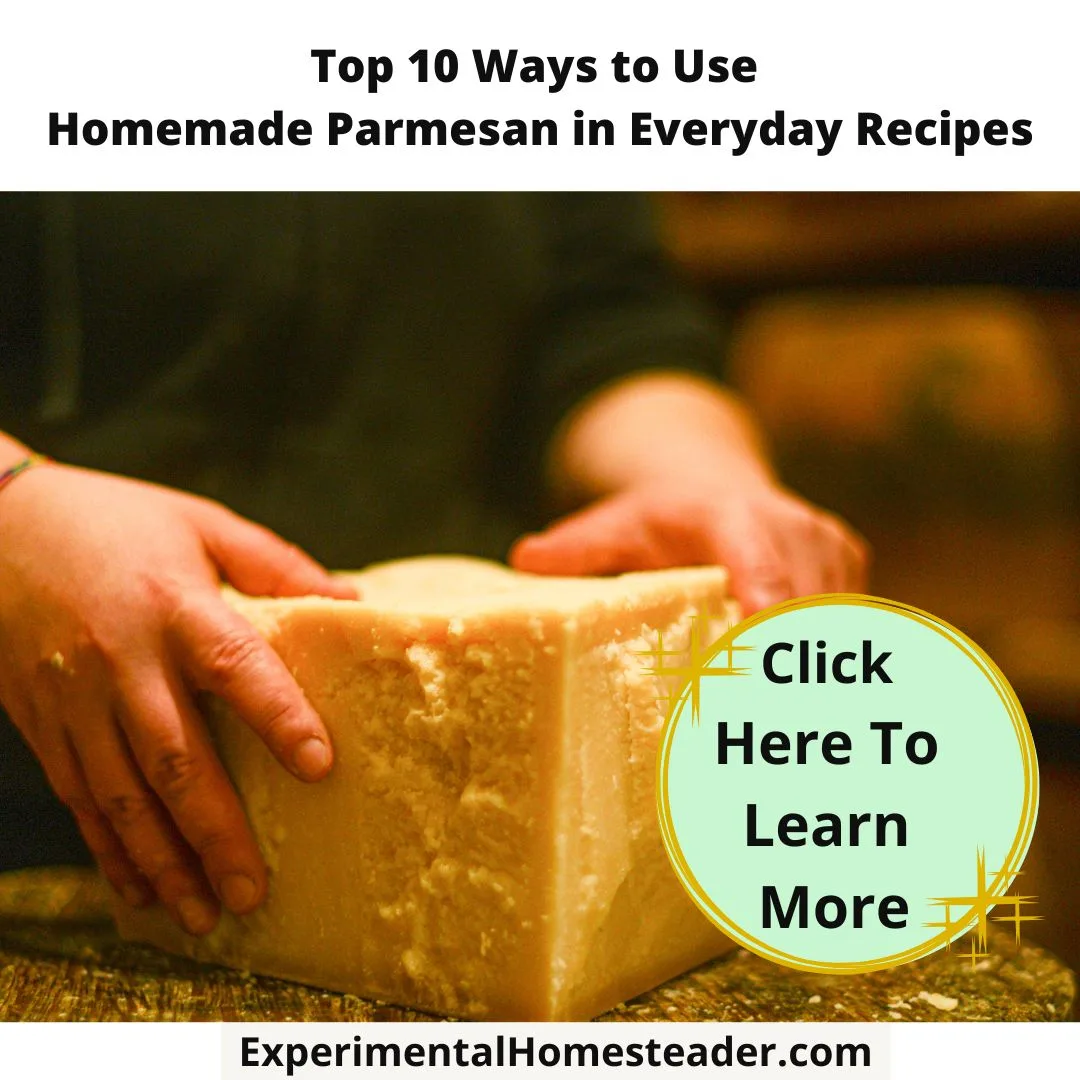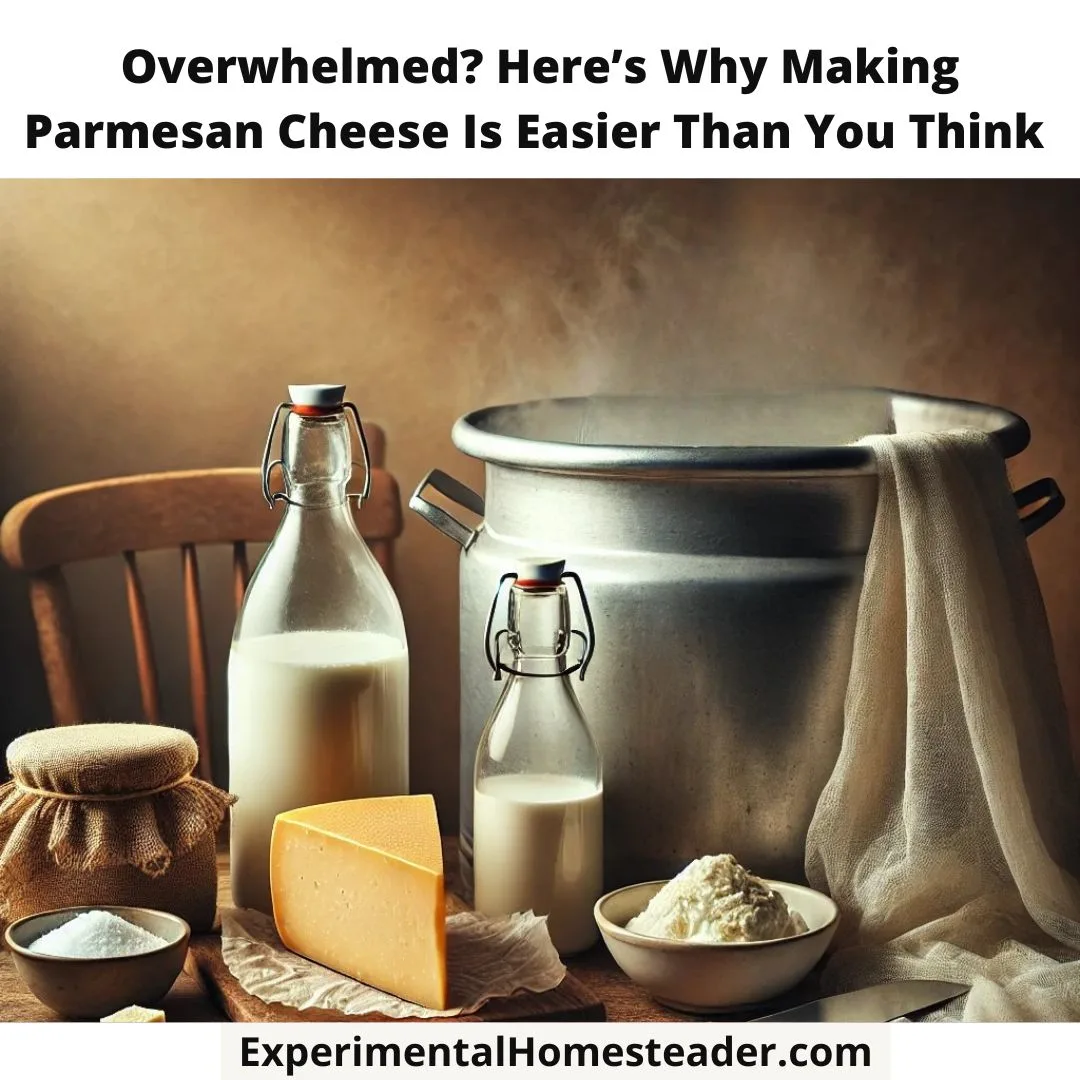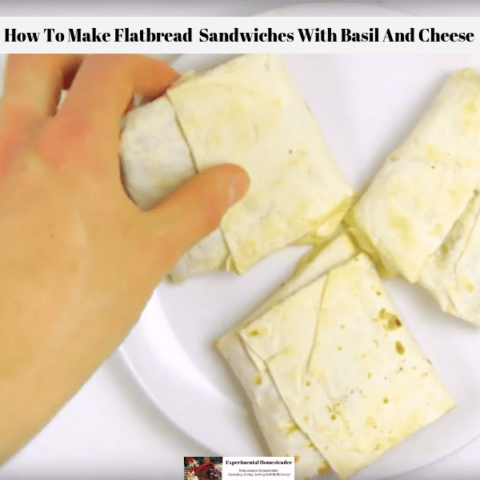Parmesan cheese is more than just a staple in Italian cuisine; it’s a culinary gem that has fascinated food lovers for centuries.
This ultimate guide to Parmesan cheese dives deep into its intricate science and diverse culinary uses, making it a must-have resource for homesteaders and food enthusiasts alike.
Whether you’re curious about making it from scratch, exploring its role in your favorite recipes, or handling unexpected mold, this guide serves as your cornerstone for all things Parmesan cheese.
With practical advice, step-by-step tutorials, and inspiring ideas, you’ll gain the confidence to master Parmesan cheesemaking and elevate your culinary skills.
From understanding its unique flavor profile to finding creative ways to incorporate it into everyday dishes, this guide has you covered.
Start your Parmesan adventure today and discover why this cheese is a true treasure.
The Science Behind Parmesan Cheese: What Makes It So Special?
Before diving into the practicalities, uncover the fascinating science that makes Parmesan cheese stand out.
This post delves into the unique aging process, the role of enzymes, and why Parmesan’s umami flavor profile is so beloved.
If you’ve ever wondered why authentic Parmesan tastes the way it does, this article is a must-read.
Explore more: The Science Behind Parmesan Cheese
Overwhelmed? Here’s Why Making Parmesan Cheese Is Easier Than You Think
If the idea of making your own Parmesan cheese feels daunting, this encouraging post is here to change your mind.
Discover simple steps and practical tips to get started, even if you’re new to cheesemaking.
You’ll be surprised at how straightforward the process can be with the right guidance.
Discover the process: Making Parmesan Cheese Is Easier Than You Think
Easy Homemade Parmesan Cheese Recipe
Ready to roll up your sleeves and make your own Parmesan cheese?
This step-by-step recipe walks you through everything you need to know, from choosing the right ingredients to aging your cheese like a pro.
With this guide, you’ll soon have your very own homemade Parmesan ready to impress.
Get the recipe: Easy Homemade Parmesan Cheese Recipe
Top 10 Ways to Use Homemade Parmesan in Everyday Recipes
Once you have your homemade Parmesan, the possibilities are endless!
This roundup of recipes will inspire you to use your Parmesan creatively, from savory dishes like pasta and risotto to unexpected pairings with desserts.
Your kitchen will never be the same!
Get inspired: Top 10 Ways to Use Homemade Parmesan
Mastering Parmesan Cheese-Making as a Homesteading Skill
Making Parmesan cheese isn’t just a fun culinary project; it’s a valuable homesteading skill that connects you to sustainable living.
This post explores why learning to make Parmesan is a game-changer for homesteaders and how it fits into a self-sufficient lifestyle.
Learn more: Mastering Parmesan Cheese-Making
Is Mold On Parmesan Cheese Harmful?
Encountering mold on Parmesan cheese can be alarming, but not all mold is harmful.
This article helps you identify when mold is safe to remove and when it’s best to discard your cheese.
With this practical guide, you’ll navigate mold issues confidently.
Stay informed: Is Mold on Parmesan Cheese Harmful?
Your Comprehensive Parmesan Resource
This guide serves as your comprehensive Parmesan Resource, connecting you to in-depth posts and actionable advice.
By bookmarking this page, you’ll have quick access to:
- The science behind Parmesan’s unique qualities.
- Encouragement and how-to’s for beginners.
- A proven recipe for homemade Parmesan cheese.
- Creative culinary uses for your homemade cheese.
- Tips for managing Parmesan as a homesteading skill.
- Practical advice for handling mold issues.
FAQ: Everything You Need to Know About Parmesan Cheese
Q. How long does Parmesan cheese last?
A. Properly stored Parmesan cheese can last up to six months in the refrigerator. Ensure it is tightly wrapped in wax paper or foil and placed in an airtight container to prevent drying out.
Q. What is the difference between Parmesan and Parmigiano-Reggiano?
A. Parmigiano-Reggiano is the authentic version of Parmesan, made in specific regions of Italy under strict regulations. Parmesan sold in other parts of the world often mimics this cheese but may not meet the same standards.
Q. Can you freeze Parmesan cheese?
A. Yes, you can freeze Parmesan cheese to extend its shelf life. Grate or portion it into small pieces before freezing to make it easier to use. Keep it in an airtight container or freezer bag to preserve its flavor and texture.
Q. Why is Parmesan cheese so expensive?
A. The high cost of Parmesan comes from its lengthy aging process, specific production standards, and limited geographic production areas. Authentic Parmigiano-Reggiano can age for 12 to 36 months, adding to its price.
Q. Is mold on Parmesan cheese harmful?
A. Not always. If you spot mold on Parmesan, it’s often safe to cut off the affected area with a margin of about an inch. However, if the mold is widespread or penetrates deep into the cheese, it’s best to discard it.
Q. Can lactose-intolerant individuals eat Parmesan cheese?
A. Yes! Parmesan is naturally low in lactose due to the fermentation and aging process, making it suitable for many lactose-intolerant individuals.
Q. How do I store homemade Parmesan cheese?
A. Wrap your homemade Parmesan in wax or parchment paper, followed by aluminum foil or a resealable bag. Store it in the refrigerator’s cheese drawer or another cool, humid spot.
Q. What can I do with leftover Parmesan rinds?
A. Don’t throw them away! Parmesan rinds are excellent for adding depth to soups, stews, or stocks. Simply simmer the rind in your dish and remove it before serving.
Q. Can Parmesan cheese be made without animal rennet?
A. Yes, there are vegetarian versions of Parmesan made with microbial or plant-based rennet. However, authentic Parmigiano-Reggiano always uses animal rennet.
Your Parmesan Cheese Journey Starts Here
Whether you’re a seasoned homesteader or a curious foodie, this ultimate guide to Parmesan cheese has something for everyone.
From the science behind its unique flavor to practical tips for making and using your own Parmesan at home, this guide is your one-stop resource.
With in-depth posts covering everything from easy recipes to mastering cheesemaking as a homesteading skill, you’ll have all the knowledge you need to succeed.
Parmesan cheese isn’t just an ingredient—it’s an experience that adds depth and richness to your cooking.
Imagine the satisfaction of grating your own homemade Parmesan over a steaming bowl of pasta or adding it to a favorite recipe.
Whether you’re experimenting for the first time or refining your cheesemaking techniques, this guide will inspire and empower you every step of the way.
Start your journey today and discover how mastering Parmesan cheese-making can elevate not just your meals, but your homesteading lifestyle as well!
Ready to explore? Click the links above to start your Parmesan adventure!
Cheese Recipes And Taste Testings
Chocolate Cheese And Blueberry Cheese
I had never heard of chocolate cheese and blueberry cheese until the day I bought them. Come hear what I thought of these unique cheeses.
The Science Behind Parmesan Cheese: What Makes It So Special?
Uncover the fascinating science behind Parmesan cheese-making and discover how each step contributes to its distinct flavor and texture.
Mastering Parmesan Cheese-Making as a Homesteading Skill
Discover how Parmesan cheese-making as a homesteading skill connects you to self-sufficiency, sustainability, and intentional living.
Is Mold On Parmesan Cheese Harmful?
Learn how to handle mold on Parmesan cheese safely, prevent spoilage, and enhance storage with expert homesteading tips.
Top 10 Ways to Use Homemade Parmesan in Everyday Recipes
Discover creative ways to use homemade Parmesan in everyday recipes, from pasta to soups, cheese boards, and more!
Overwhelmed? Here’s Why Making Parmesan Cheese Is Easier Than You Think
Making Parmesan cheese is easier than you think with simple steps, basic tools, and a it's rewarding homesteading experience.
Italian Herb Gorgonzola Leaf Bites Tutorial
Making these Italian Herb Gorgonzola Leaf Bites is super easy and they are a delicious snack as well as a dazzling holiday appetizer.


